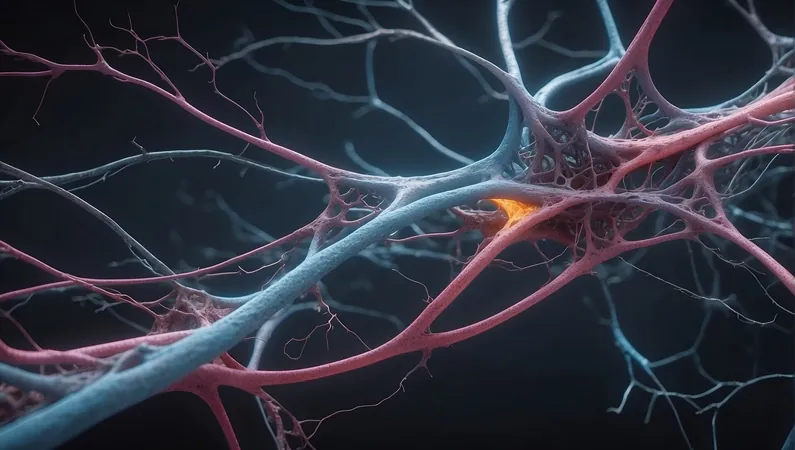
Breakthrough Study Links Immune System to ADHD and Other Neurobehavioral Disorders in Mice!
2024-11-21
Author: Daniel
Groundbreaking Study Reveals Connection Between Immune System and Neurobehavioral Disorders
In a groundbreaking study, researchers at Duke Health have revealed a startling connection between the immune system and hyperactive behaviors in mice, shedding light on potential mechanisms behind Attention-Deficit/Hyperactivity Disorder (ADHD) and other neurodevelopmental conditions such as autism. This research, published in the journal Brain, Behavior, and Immunity, unveils how the STAT1 gene, crucial for immune responses, may play a role in shaping neurobehavioral traits.
Insights from the Senior Author
Senior author Dr. Anthony Filiano, an assistant professor at Duke University School of Medicine, emphasized the intricate communication between the immune system and the brain. 'Many pathways identified within the immune system are also significant for brain function. This opens a new avenue for therapy, as the immune system is highly targetable,' he stated.
Research Methodology and Observations
To better understand the role of STAT1, Filiano and his team collaborated with researchers from Columbia University to develop mice with a mutation in the STAT1 gene. By observing these mice, the team discovered that excessive activation of the immune pathway impacted brain cell types, particularly dopamine neurons, which are vital for regulating reward and motor functions.
Findings on STAT1 Activation and Hyperactivity
The research highlighted a concerning trend: prolonged activation of STAT1 signaling in these neurons, starting from embryonic development, resulted in hyperactive behaviors and a reduction in both the number and activity of neurons in a brain region critical for learning, memory, and motivation. According to Filiano, 'Our findings indicate that disruptions in STAT1 signaling in dopamine neurons could significantly influence behavior, potentially leading to neurodevelopmental disorders.'
Future Research Directions
What does this mean for the future? Dr. Filiano hinted at promising possibilities, stating that further research will focus on developing therapies that target the STAT1 pathway. 'Understanding its specific function will be our next step before implementing targeted treatments,' he remarked.
Conclusion and Implications
This vital research underscores the importance of interdisciplinary studies combining immunology and neurobiology, potentially paving the way for innovative approaches to treat ADHD and similar conditions. Stay tuned as we keep you updated on this compelling intersection of the immune system and brain health!


 Brasil (PT)
Brasil (PT)
 Canada (EN)
Canada (EN)
 Chile (ES)
Chile (ES)
 España (ES)
España (ES)
 France (FR)
France (FR)
 Hong Kong (EN)
Hong Kong (EN)
 Italia (IT)
Italia (IT)
 日本 (JA)
日本 (JA)
 Magyarország (HU)
Magyarország (HU)
 Norge (NO)
Norge (NO)
 Polska (PL)
Polska (PL)
 Schweiz (DE)
Schweiz (DE)
 Singapore (EN)
Singapore (EN)
 Sverige (SV)
Sverige (SV)
 Suomi (FI)
Suomi (FI)
 Türkiye (TR)
Türkiye (TR)